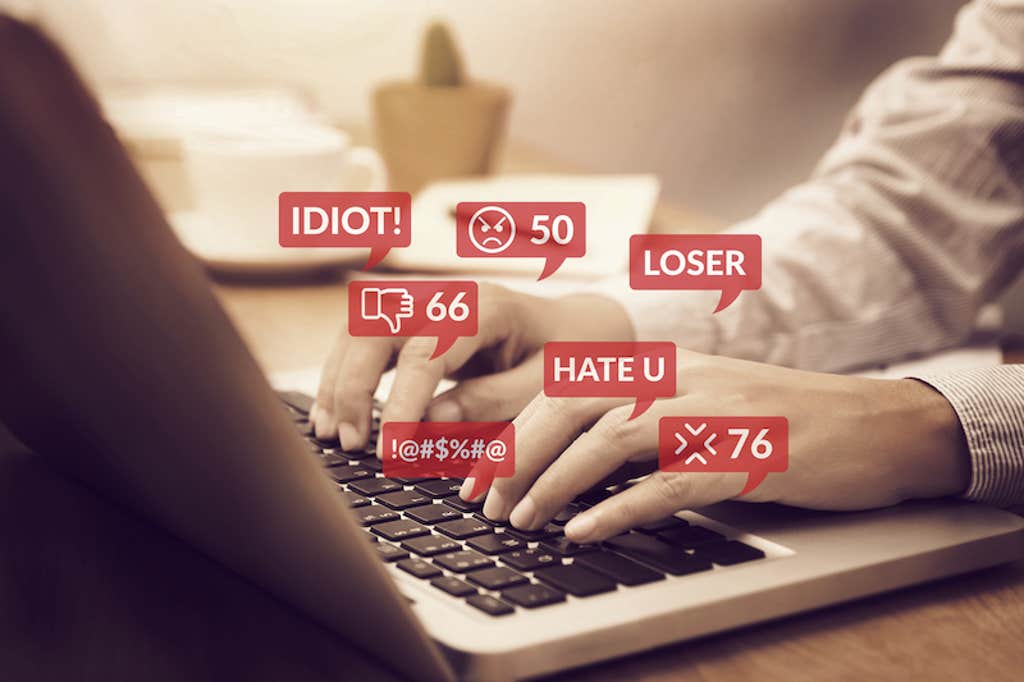
Being an influencer might seem glamorous. However, content creators must make tough decisions beyond the brand deals and fandom. As an influencer’s audience grows, so does their engagement. Along with positive praise often comes endless negativity. What is too much? When is deleting negative comments on social media ok?
A clear policy on handling aggressive commenters is essential to building a brand. It’s invaluable to stay consistent and transparent with your audience. So we’ve turned to five influencers to discover the best practices that guide their way.
Here are five policies from influencers on whether or not they delete negative comments on their social media channels.
Five influencers on when deleting negative comments on social media are okay
1) Keep a zero-tolerance policy when deleting negative comments on social media
To streamline the decision-making process around deleting negative comments on social media, Renee Fuentes, a food influencer, keeps her policy simple. She told Passionfruit she keeps a zero-tolerance policy.
“Rude and hurtful comments get deleted on all my social media challenges,” Fuentes said. “ I want to share a positive and safe space on my channels, so there’s no room for rude behavior.”
However, Fuentes said there’s an exception for comments that leave constructive criticism or feedback. In those cases, she will reply and discuss the comment.
2) Delete and block

For busy influencers, handling repeat offenders who leave negative comments is not something they have time for. Sara McDaniel, a home renovation influencer, told Passionfruit she takes a two-step approach to dealing with hurtful comments.
“When someone crosses the line and exhibits blatant disrespect, hate speech, or degradation, I will delete the comment and block the person,” McDaniel said.
3) Don’t have a blanket approach
If you’re not quite ready for a blanket approach, Kelsey Riley, a plant-based food influencer, decides what to do based on the comment.
She told Passionfruit that her general rule of thumb when deleting negative comments on social media is to delete anything hateful or harmful. However, if someone leaves a borderline comment or one that’s funny or critical (for example, someone said her fridge is ugly), she lets it stay up.
“I also get funny comments that are a little mean or controversial, and I’ll usually leave those up,” she said. “If someone is disagreeing with me or respectfully sharing another viewpoint, I will leave those up.”
4) Negative comments help engagement

Over time, Chris Chapanar, a Whiskey influencer, has learned to quit patrolling negative comments. Not only does he find it time-consuming, but the negative comments can sometimes have a positive effect.
Chapanar told Passionfruit he ignores the negative comments, but his followers don’t. They often respond to the comments.
“Debates in the comment section can actually be very beneficial to post’s engagement, so I find it best to leave comments, even if they go against the theme of my post,” he said. At the end of the day, someone out there will always disagree with you, and that’s okay.”
5) Deleting comments makes it worse
For some influencers, deleting negative comments on social media isn’t something they believe in. Ashley Ryan, an influencer with over 400,000 followers across her social media accounts, told Passionfruit that deleting comments adds fuel to the fire.
“You can make a bad problem worse by deleting comments,” Ryan said.
Instead, she recommended restricting accounts for egregious offenders. By restricting those posters, you’ll be the only one to see what they wrote. Ryan says the people you restrict won’t know they’re restricted, effectively muting them.
When Should You Address Negative Comments?
It’s important to respond to negative comments thoughtfully and selectively. When the feedback is constructive, addressing it openly can demonstrate humility and a willingness to improve, fostering trust and respect among followers. However, it’s equally important to recognize when comments are purely malicious or troll-like, as engaging with these can amplify negativity and derail productive conversations. Prioritizing responses to genuine concerns or misunderstandings can turn potential critics into loyal supporters. Balancing transparency, empathy, and discernment in addressing negative comments helps cultivate a supportive and engaged community while protecting one’s mental well-being and professional reputation. Check out our full guide on how to deal with negative comments.
How to Respond to Negative Comments
If you feel you need to respond to a negative comment, it’s a good idea to know how to handle it. The response will depend on what the comment was, but there is some general advice to follow. Responding to negative comments requires a balanced approach that maintains professionalism and empathy while protecting one’s mental well-being. Here are some steps to effectively respond to negative comments:
- Stay Calm and Assess the Comment: Before responding, take a moment to breathe and evaluate the comment objectively. Determine if it’s constructive criticism, a misunderstanding, or a troll.
- Acknowledge and Empathize: Start by acknowledging the commenter’s feelings and show empathy. This can help diffuse tension and demonstrate that you value their perspective.
- Respond Constructively: If the comment is constructive, address the specific concerns or questions raised. Provide clarifications, apologize if necessary, and explain any steps you’re taking to improve.
- Keep it Professional: Maintain a professional tone, even if the comment is harsh or unfair. Avoid getting defensive or engaging in arguments.
- Redirect to Private Channels if Needed: For more complex issues, suggest continuing the conversation privately through direct messages or email. This can prevent prolonged public debates and allow for a more detailed resolution.
- Ignore or Delete Malicious Comments: If the comment is clearly a troll or malicious, it might be best to ignore or delete it. Engaging with such comments can often escalate the situation.
- Set Boundaries and Moderate: Establish clear community guidelines for acceptable behavior and enforce them consistently. This helps create a positive and respectful environment.
- Learn and Improve: Use constructive feedback as an opportunity to learn and improve. Show your audience that you are committed to growth and value their input.
By following these steps, influencers and content creators can handle negative comments effectively, maintaining a positive and engaging online presence.




